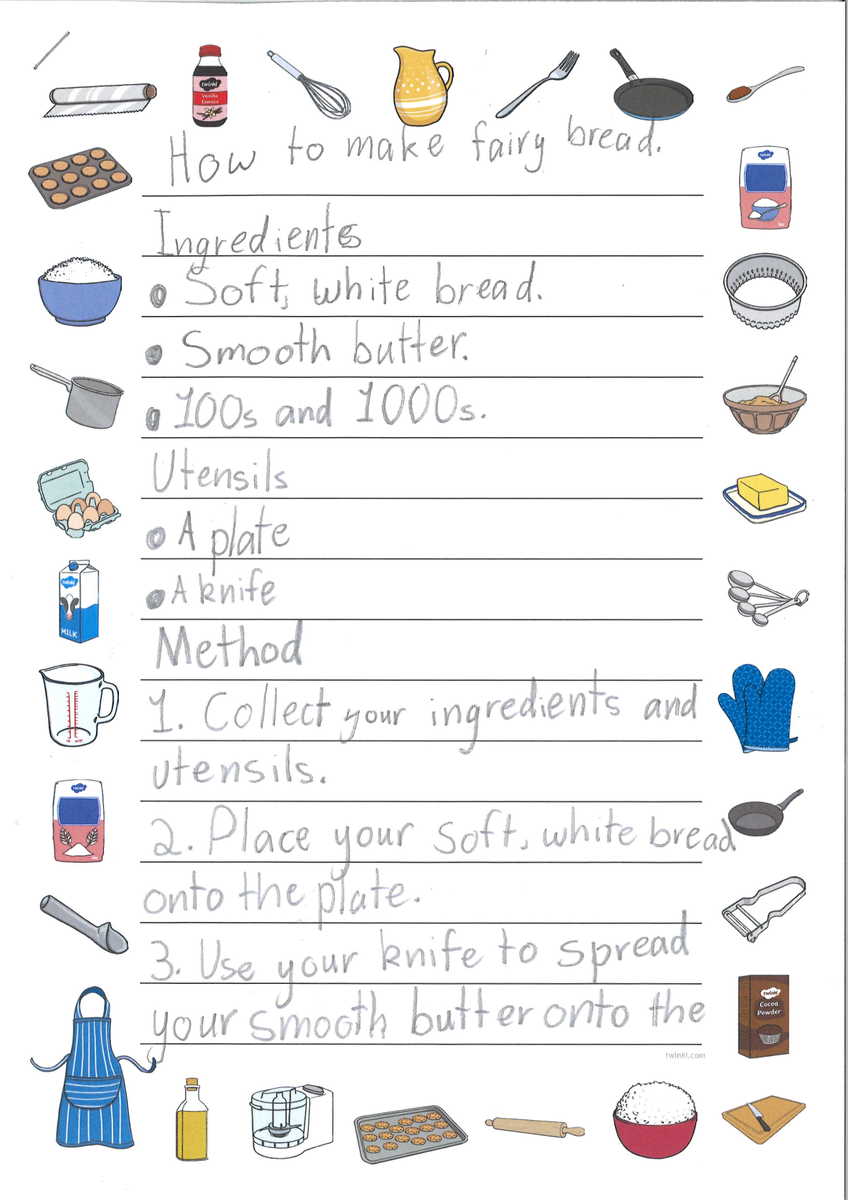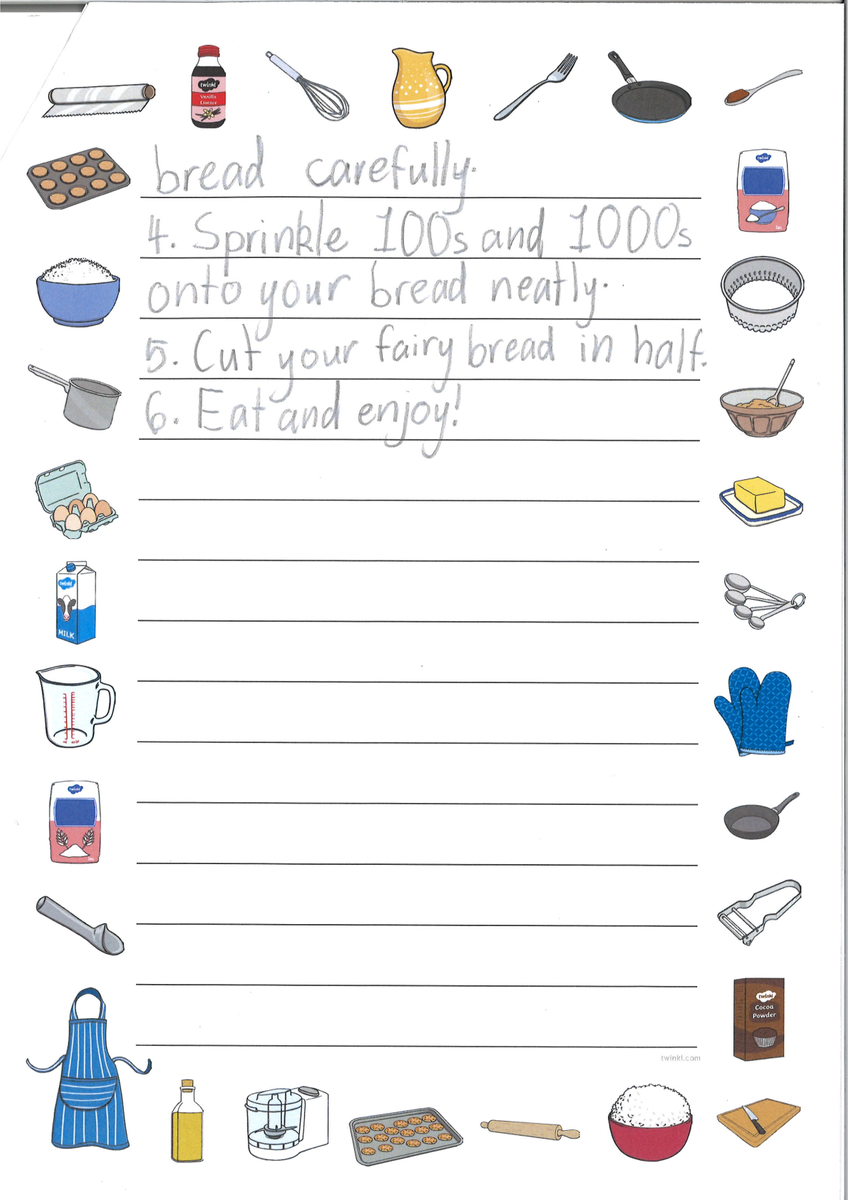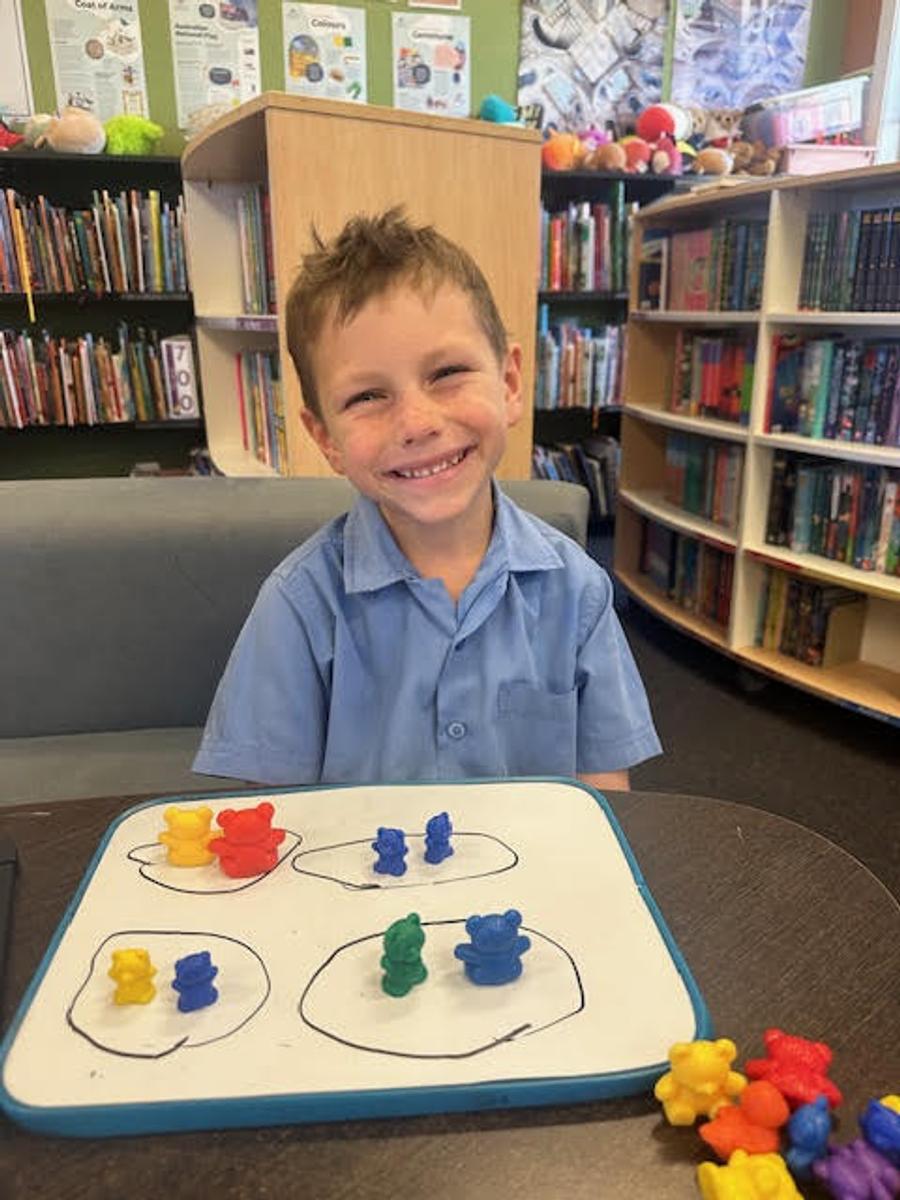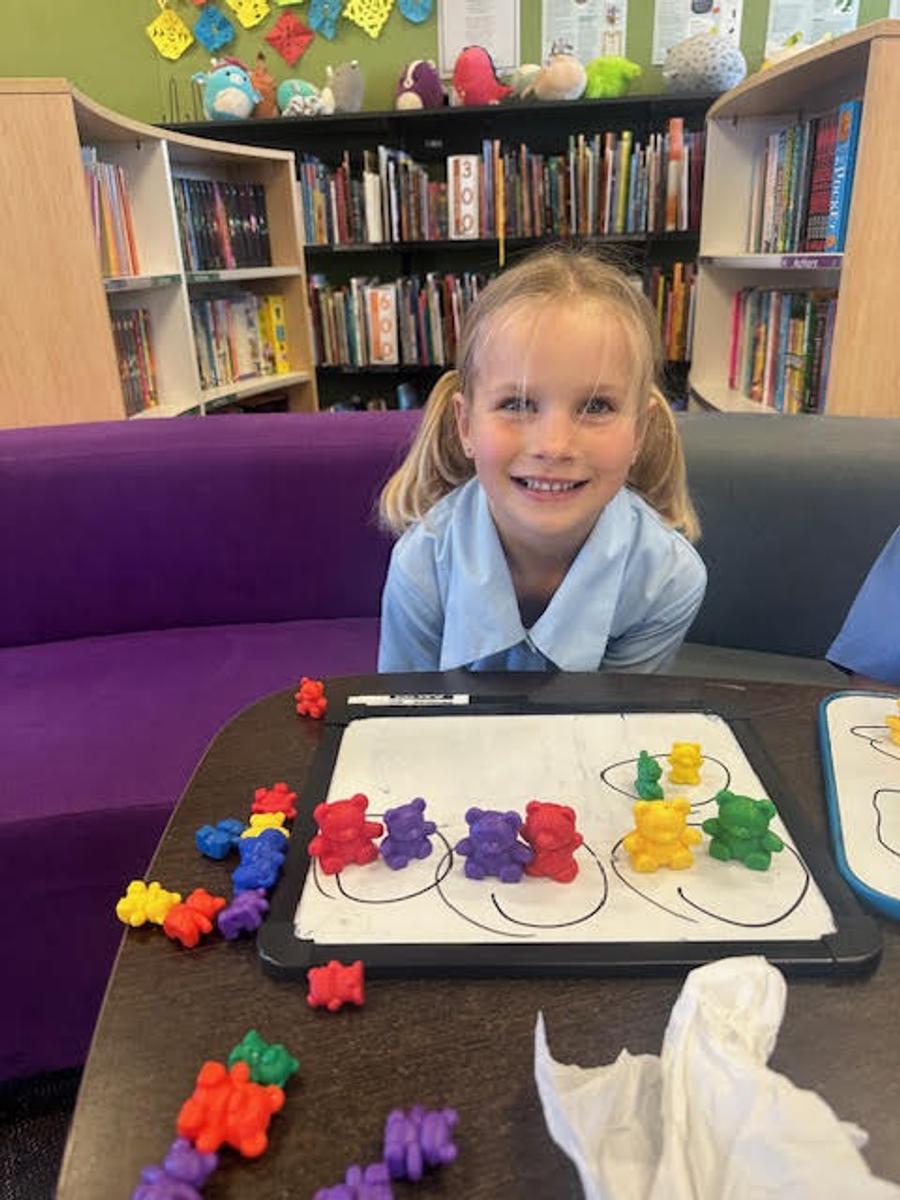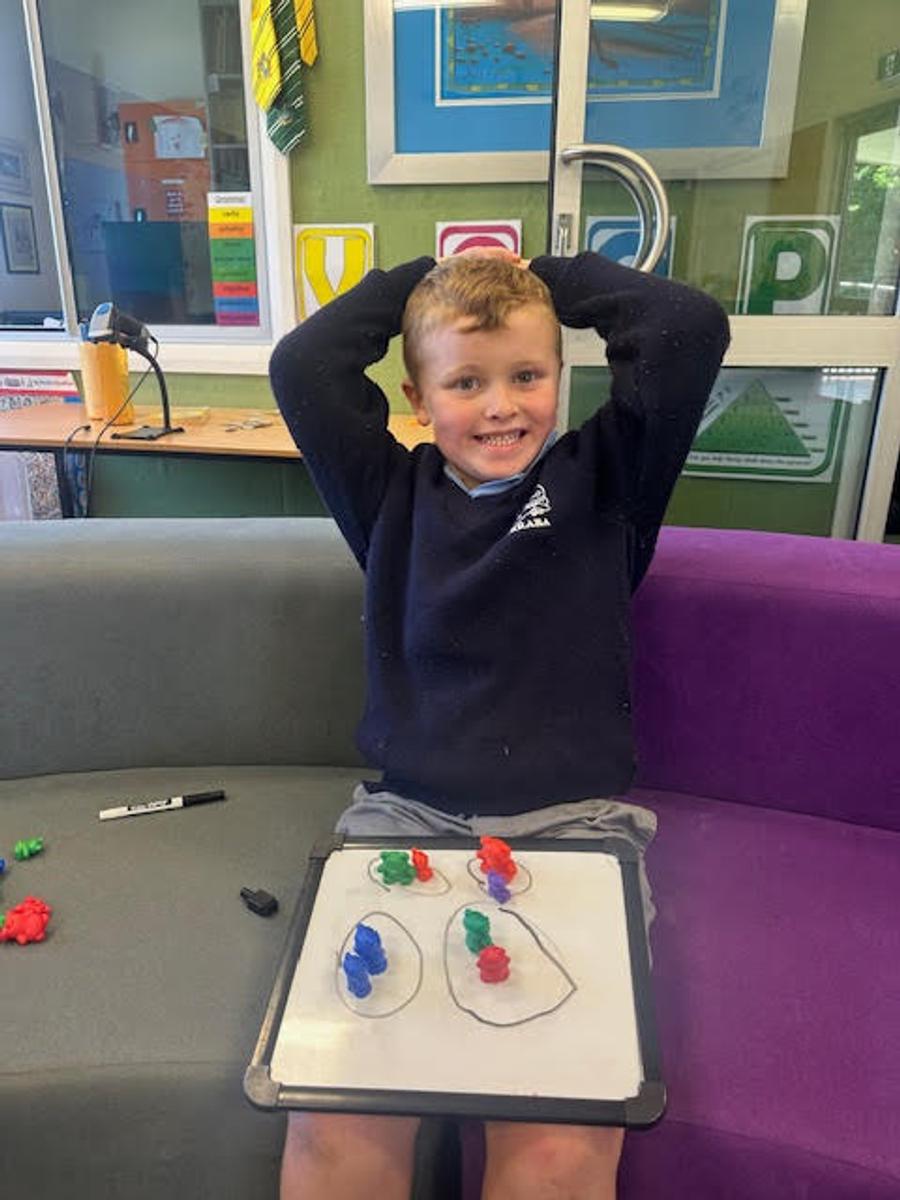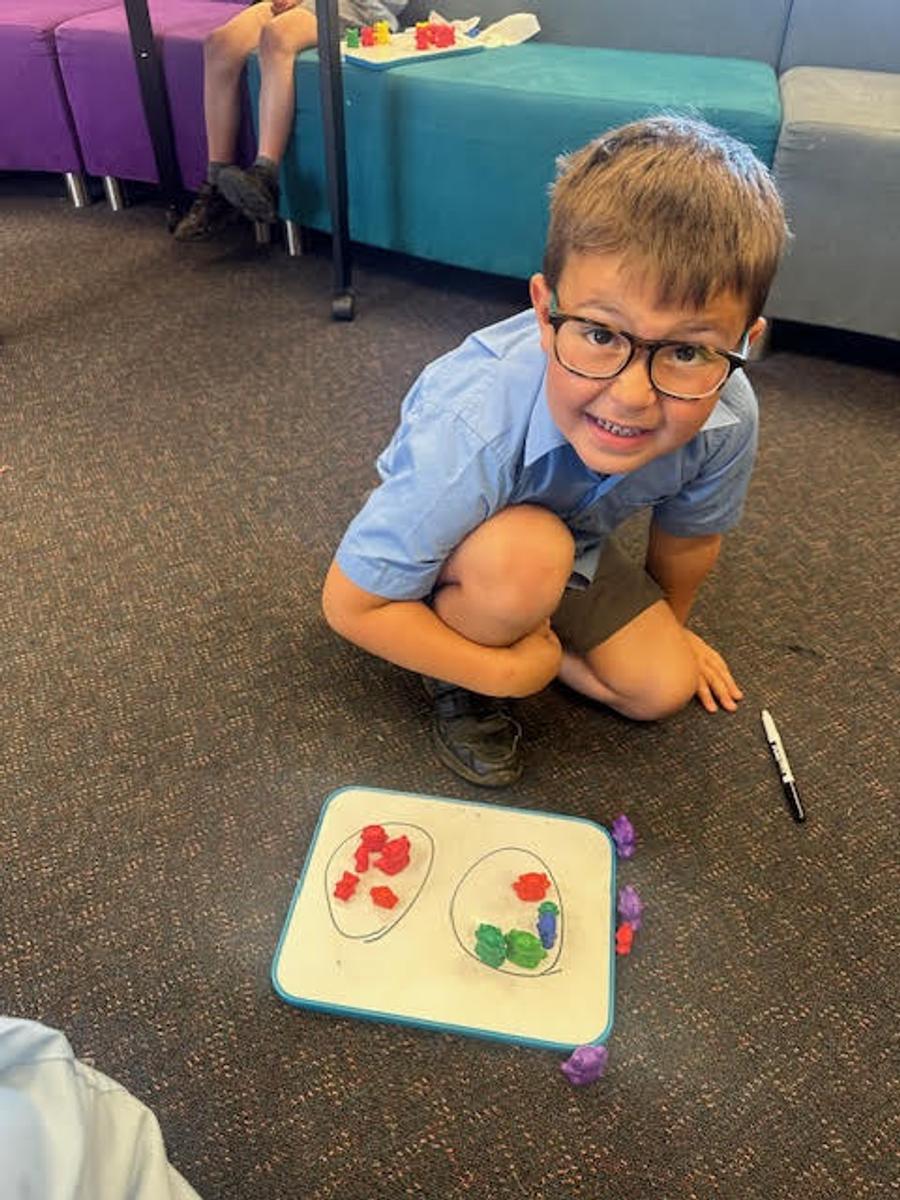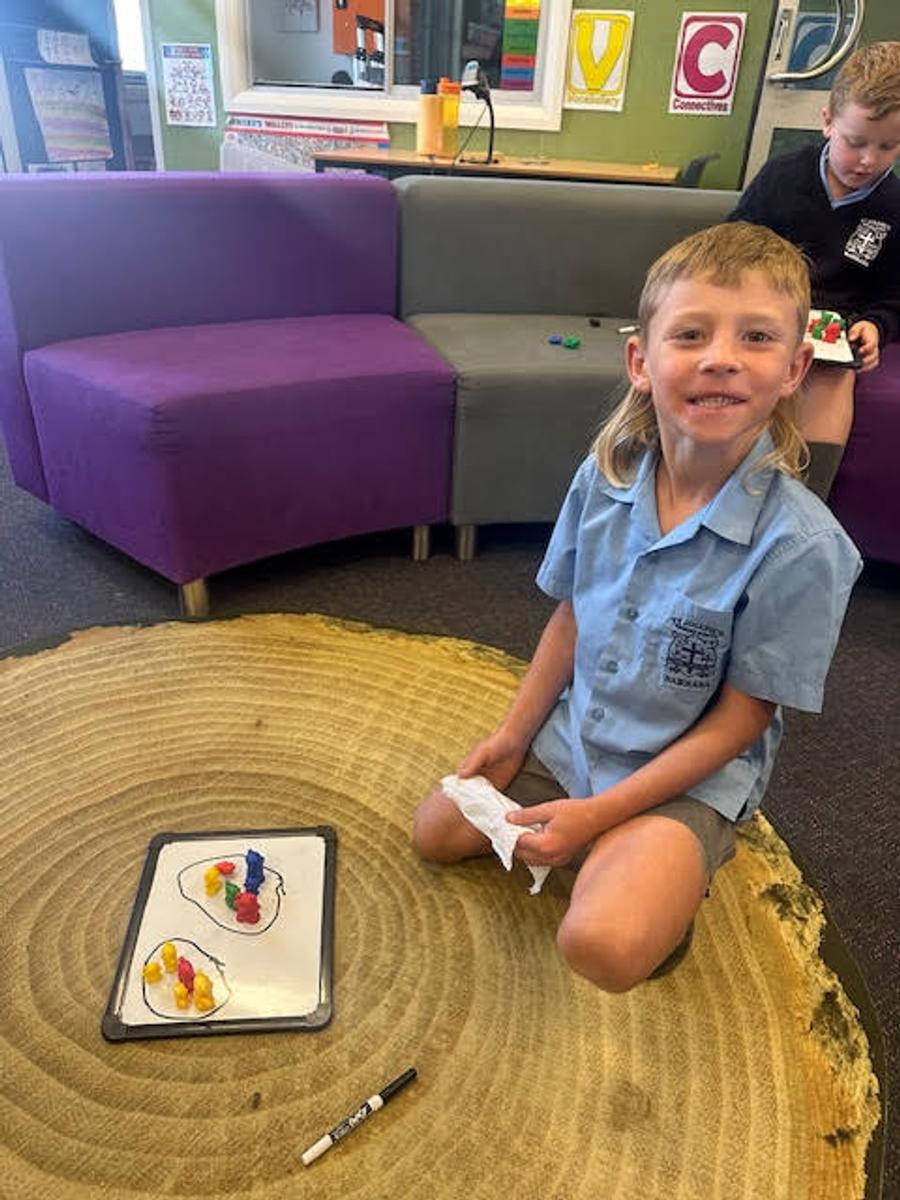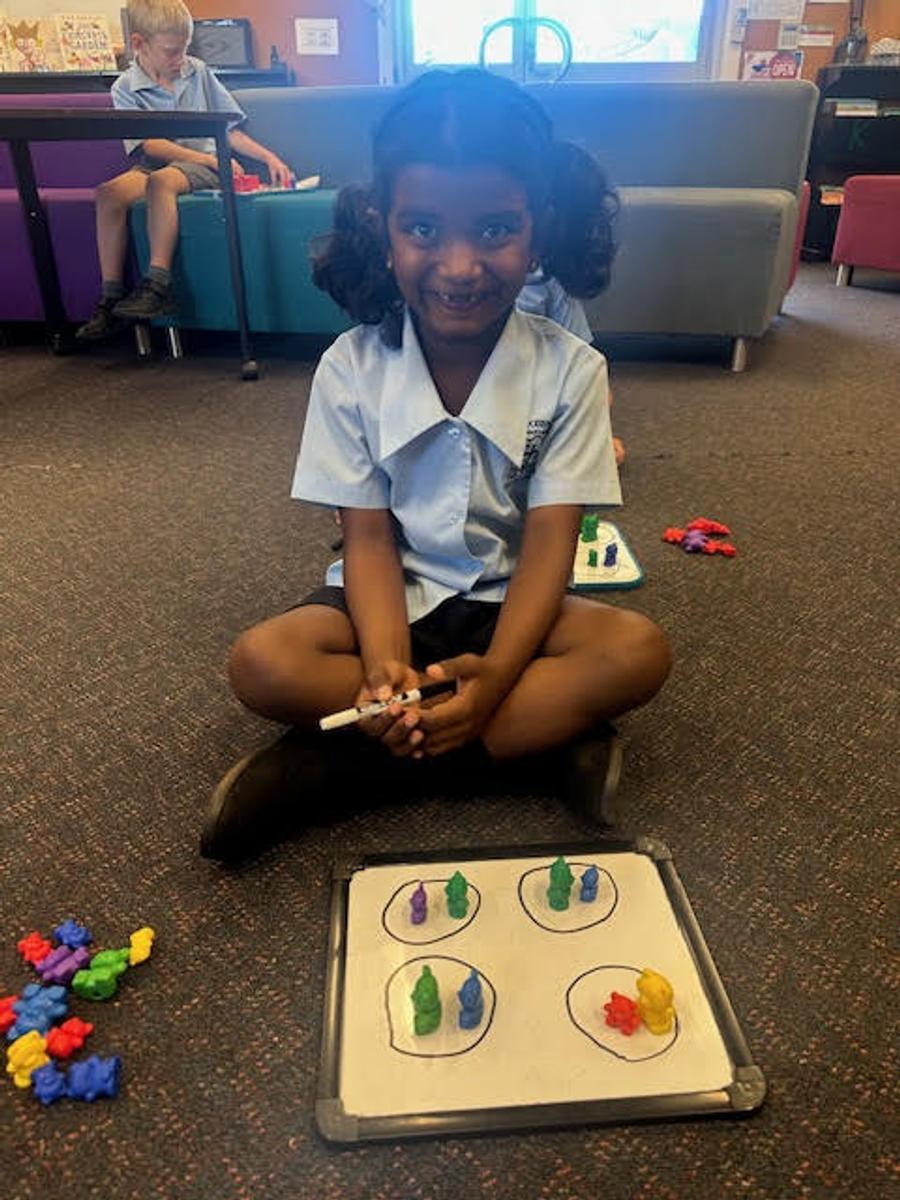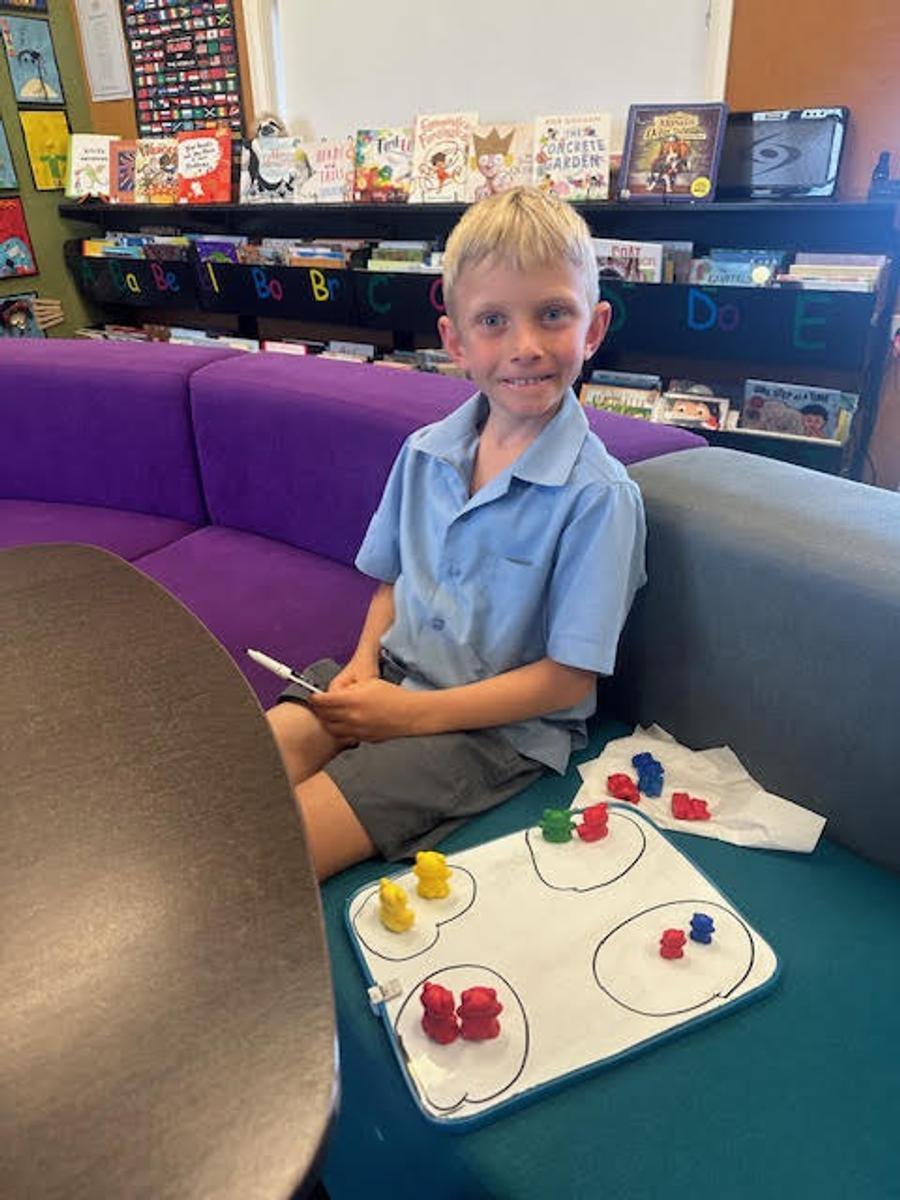Please continue to read your readers & tricky words each night!
When students complete their tricky word lists, please practise spelling them.
Writing
For the next few weeks, we will be focusing on writing procedures. Please feel free to read different types of procedures at home! These could range from recipes, science experiments, rules of games or craft instructions. This week, we wrote a procedure on how to make Fairy Bread.
If you have a child in Kindergarten, please practise pronouncing the 'th' sound at home. We have been focusing on this sound, and some children have been finding it quite difficult to know the difference between 'th' and 'f'.
Maths
In Kindergarten, we are learning all about multiplication. Students are learning to form equal groups by sharing and counting collections of objects. Here are a few activities to practise at home!
- Putting objects together in equal groups helps children to understand early multiplication. Encourage your child to move objects to create equal groups. There are lots of opportunities to make and show equal groups in everyday life. Think about events when sharing is needed and ask your child to help you create equal groups.
- Sharing equal amounts of food
- Baking biscuits or cupcakes where the mixture is shared equally
- Building 2 Lego towers the same height
- Giving equal amounts of time to play with a toy
- Organising your toys into equal groups.
- Sharing out cards for a card game
- One of the best ways to explore equal groups is to make unequal groups and problem solve together how to make them equal.
Year 1 are beginning a new unit all about mass. Students will be learning to measure, record, compare and estimate the masses of objects using uniform informal units. Here are some activities to do at home.
- Mass and weight are different as weight is a force created from the gravitational attraction to the Earth's centre.
- Weight is the force acting on an object, weight can change depending on the gravitational force, for example you would weigh less on the moon as the gravity is weaker there, however your mass remains the same.
- Ask your child to look around at home and find objects that they would describe as being light. Once they have a collection of "lights" you could ask them to find objects that they would describe as heavy.
- Discuss the mass of items from your shopping as you put them away. Ask “Is this tin of tuna lighter or heavier than this bag of sugar?” Use words that describe the mass of objects when you are engaging in daily family activities, e.g. “Your school bag is heavy today because you have that heavy book in it.”
- Measure the weights of ingredients with your children when baking.

